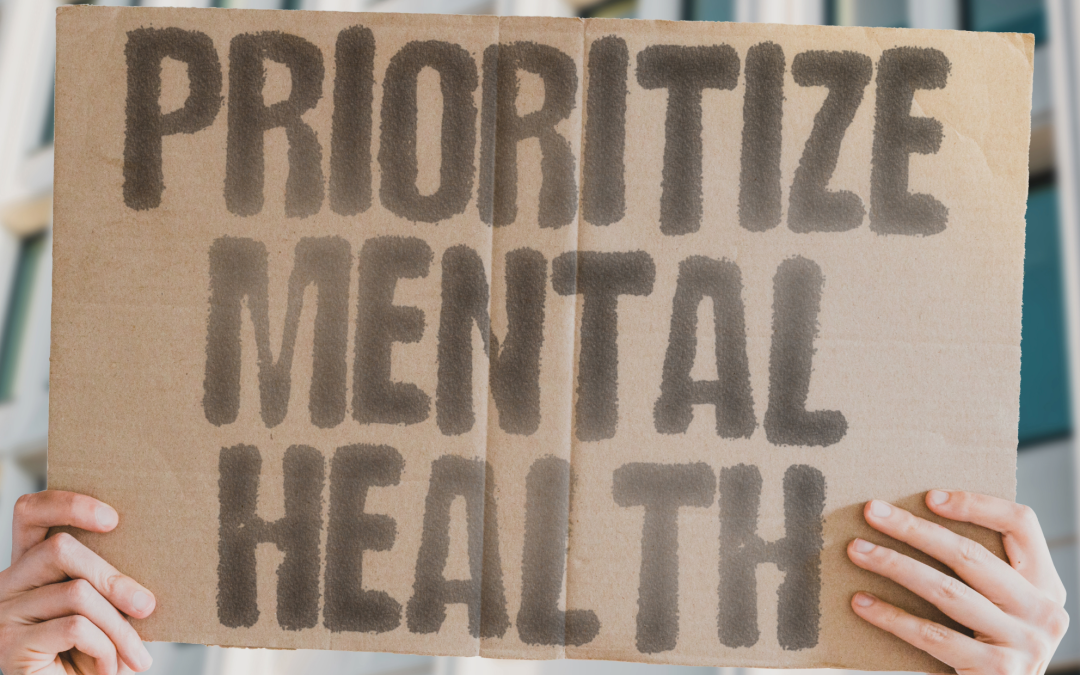Prioritizing Mental Wellness
May is Mental Health Month, a time dedicated to raising awareness about the importance of mental well-being and breaking the stigma surrounding mental health struggles. Mental health is just as vital as physical health and taking proactive steps to care for your emotional and psychological well-being can lead to a healthier, more fulfilling life.
Many people face challenges such as anxiety, depression, stress, or other mental health conditions, yet they may not seek help due to stigma or concerns about affordability. Fortunately, health insurance can play a key role in making mental health care more accessible and affordable.
The Importance of Mental Health
Mental health affects every aspect of our lives, from relationships and work performance to overall quality of life. Some of the benefits of prioritizing mental well-being include:
- Better stress management: Learning coping strategies can help you navigate daily pressures more effectively.
- Improved physical health: Mental health conditions can impact physical health, increasing the risk of conditions like heart disease and weakened immune function.
- Stronger relationships: Taking care of your mental health allows you to build and maintain healthier connections with others.
- Enhanced productivity: Mental wellness contributes to better focus, creativity, and decision-making in the workplace and daily life.
How Your Insurance Can Help
Your health insurance plan likely includes benefits that support mental health care. Here are some ways your coverage can assist you:
- Mental Health Therapy and Counseling – Many insurance plans cover visits to licensed therapists, psychologists, and psychiatrists. Whether you need individual therapy, family counseling, or support groups, your plan may include a network of professionals to choose from.
- Telehealth and Virtual Therapy – With the rise of telehealth services, many insurance providers offer coverage for virtual therapy sessions. This allows you to connect with a mental health professional from the comfort of your home, making it more convenient and accessible.
- Medication Coverage – If a healthcare provider prescribes medication for mental health conditions such as anxiety, depression, or bipolar disorder, your insurance plan may cover part or all of the cost. Be sure to check your formulary for details on prescription benefits.
- Employee Assistance Programs (EAPs) – If you have employer-sponsored insurance, you may have access to an Employee Assistance Program (EAP). These programs often include free counseling sessions, stress management resources, and wellness support to help employees cope with personal and work-related challenges.
- Preventive Screenings and Wellness Programs – Many insurance plans cover mental health screenings and preventive care services. These screenings can help detect conditions early, allowing for timely intervention and treatment.
- Inpatient and Outpatient Mental Health Services – For individuals needing more intensive care, insurance plans often include coverage for inpatient hospital stays and outpatient treatment programs. These services provide structured support for those experiencing severe mental health crises.
Take Action This Mental Health Month
Taking care of your mental health should be a priority. If you or a loved one are struggling, don’t hesitate to use the resources available through your insurance plan. Reach out to us to learn more about your mental health benefits and find in-network providers.
We are committed to helping individuals and families navigate their healthcare coverage and find the right support for their needs. If you have questions about mental health benefits or need assistance choosing the best plan, contact us today.
This Mental Health Month, take the first step toward a healthier, happier you. Seeking support is a sign of strength—let’s work together to break the stigma and prioritize mental well-being for all.

